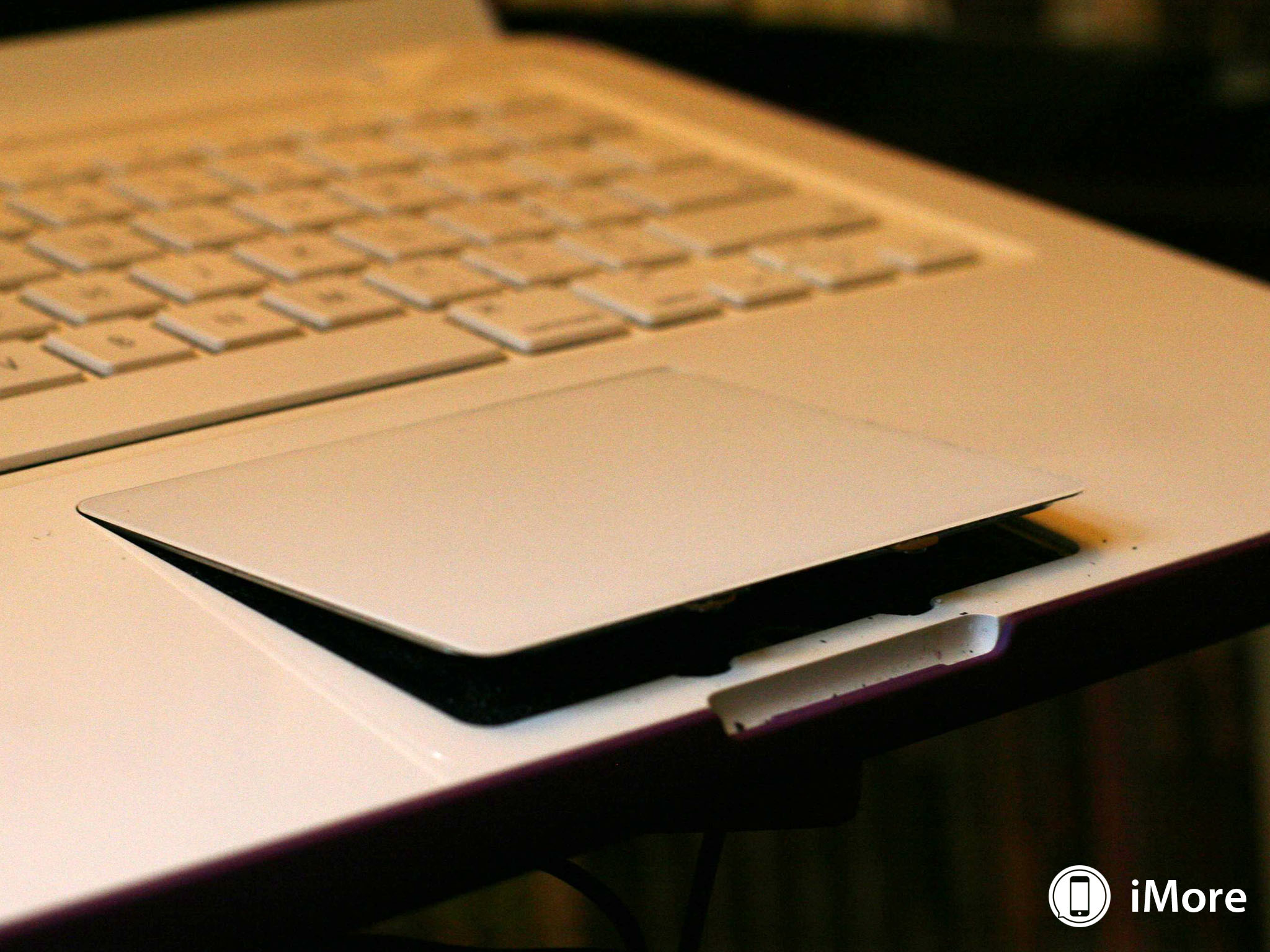Should you buy an extended warranty from retailers for your tech?

iMore offers spot-on advice and guidance from our team of experts, with decades of Apple device experience to lean on. Learn more with iMore!
You are now subscribed
Your newsletter sign-up was successful
If you nip into a store like Best Buy or Walmart for your large electronics, you'll almost definitely be offered a protection plan of some sort. These are often replacement or repair programs that claim to make the blow of dead electronics easier on you in the long run. "If your TV dies in the next four years, we'll give you a TV valued at what you're paying now."
As a former Best Buy employee, I've been on the inside of these transactions, and I've seen the tricks other employees pull to try to sell these overpriced plans, because this is where these stores make the most money. The markup and profit on these plans is almost as much as it is on accessories (did you know cost on a $50 HDMI cable is like $2?).
Here are my two cents as to whether or not you should actually buy into one of these plans.
What you're buying
These protection plans are usually pretty well-explained, and you'll almost always get a pamphlet on what you're entitled to in the event that your device goes kaput. Plans will vary by device, so whether or not you should buy the plan will also vary depending on the device you're purchasing.
Best Buy's plans
Best Buy basically has three plans: a replacement plan for smaller electronics, like cameras, headphones, gaming controllers and consoles, etc., a service plan for larger ones like TVs and home theater equipment, and a service plan for laptops and tablets. This is called "Geek Squad Protection". Remember that you don't get your money back if you don't use the service.
Product Replacement Plan
Out of the three, the replacement plan is most worth it. It's usually pretty inexpensive (around or less than 50% of the cost of the device), and really if anything goes wrong, you just get a new one. Buttons stop working on your Xbox controller? New one. Headphones stop working on one side? New pair. Depending on the device, you usually have the option for two to four years, depending on the product. Since this plan covers "normal wear and tear," it's totally worth it. It even covers blown speakers, so in the middle of your third year, crank 'em, blow 'em, and get newer speakers.
iMore offers spot-on advice and guidance from our team of experts, with decades of Apple device experience to lean on. Learn more with iMore!
This is honestly the only plan I'd purchase for my devices. But even then, I'd only get it for anything over $100. For devices below that price point (aside from gaming controllers and speakers), it's not really worth it.
Geek Squad Protection Plan: Large electronics
I can't tell you how much I was pushed to sell these plans during my tenure as a "home theater specialist." I've never been a really "salesy" dude and often found it hard to peddle this for most things I sold. I would honestly only get this plan if you're spending over $500.
Depending on the product, this plan will cover you for two to five years, with tiered pricing based on the price of the product. The longer you buy, the better the "deal," but on $2000+ TVs, the price of the service plan can hit $600 for five years.
For larger TVs and home theater systems, Best Buy will perform in-home service, but only if the manufacturer's warranty covers that or if you had things installed by Geek Squad (another massive upsell). Otherwise, you'll need to bring whatever it is into the store.
Now, coverage for these products is pretty decent: you get pixel burnout and burn-in repair, power surge repair, full parts and labor coverage, one-time bulb replacement for projectors, home theater speaker coverage, reinstallation and recalibration (if you intitally purchased those services through Geek Squad), and extended coverage for various appliance parts.
If your product cannot be repaired within a certain timeframe or it ends up just being cheaper to replace it, Best Buy will, with a product at the same price point as what you paid for your product. *This is where things get hinky and I'll explain further below**.
In my experience, these protection plans are only worth it if you're spending over $1500 on the product. The price of the plans is often exorbitant and unnecessary. The employee might give you a "deal" on the protection plan, but read on to find out why that's not the best for you, the customer. Most current LED TVs don't experience terrible burn-in unless they're cheaply made or there's a manufacturer defect (which you'll likely experience within the first year). Unless you're absolutely cranking your speakers all the time, they shouldn't blow unless there's a defect (remember that you always get what you pay for with speakers). Home appliances is an iffy category, especially depending on the appliance. There's a lot you can fix yourself on larger appliances, but I would indeed consider protection for larger appliance like fridges, ranges, washers, and dryers.
Geek Squad Protection: Computers and tablets
Though the pricing is just stupid ($270 for a three-year plan on an $850 laptop), the experts at Geek Squad are actually quite knowledgeable (in my experience). Basically if just about anything goes wrong with your computer or tablet, including accidental damage from drops or spills, it's covered (you may be charged a fee if it's for a cell phone). Best Buy will either repair it with new or refurbished parts or just replace it. Now, for certain software woes, there are likely cheaper independent options where you live. The other thing you have to consider is previous devices you've owned. I have a MacBook from 2009 and have never had to have it repaired once; there have been issues, but I've been able to fix them myself, and I'm by no means an expert when it comes to computers.
So you really need to consider your usage and whether or not you're comfortable fixing something yourself. If you have absolutely no knowledge of troubleshooting, then a Geek Squad plan may be best for you, especially if you're a power user who absolutely counts on their computer for work or other needs. I wouldn't buy a plan for a tablet, though unless you're buying the highest-end devices. Even then, that's probably an iPad, and AppleCare+ is the better deal.
For computers, it all depends on your knowledge as to whether or not you should buy the protection plan. I would say if you're somewhat savvy or have savvy friends, don't go for it or only go for it for the shortest term. With computers becoming obsolete after only a few years now, there's really no point. And you can upgrade RAM and other components down the road if need be anyway.
Where they getcha
This is the most important section when it comes to Best Buy. You will, 9 times out of 10, be offered a "deal" on your protection plan. Best Buy employees aren't on commission, but they'll still offer deals because if your numbers aren't good, you'll just get fired (or demoted to cashier). The language is always that they'll offer you the service plan for less, but the service plan is not what's being discounted. The way they discount is off the most expensive product you're buying.
If you buy a protection plan for a TV, then the money comes off the TV, not the service plan. So Best Buy makes the full amount off the plan, but less off the TV. The kicker is that, if it comes time to replace the TV (which it very rarely does), you only get a TV for the actual purchase price.
So if you're buying a $2500 TV, but the employee offers $200 off the service plan, then you're actually only pay $2300 for the TV and will only get a $2300 TV if you need a replacement.
This is how the deal is made on any and all protection plans, so be very wary.
Walmart's plans
Walmarts plans are far simpler and vary far less than Best Buy's. You get two-year or four-year options at flat rates based on the price range of your product.
They essentially cover everything Best Buy does (outlined above), but at much better rates. For example, if you purchase a laptop priced between $500 and $5000, the three-year plan is only $95. That covers your hardware, including normal wear and tear and accidental damage. Now that is absolutely worth it. Buying a TV between $1000 and $5000? $163 for a four-year plan. They'll even include in-home service if the manufacturer's warranty covers it.
And if you've spent under $150 on a product, Walmart just gives you the money back in the form of a gift card. Now I don't particularly care for the evil empire that is Walmart, but I do have to admit that it's protection plans are actually totally worth it.
Do you actually need protection?
For the most part, the answer is no. The out-of-pocket cost for most repairs does not often exceed the price of the service plan you're buying, depending on the device. I would recommend only buying protection in these scenarios, and even then, really consider your options first:
- TVs over $2000
- Computers and laptops over $1500
- Home theater setups over $2000
Common repairs don't often exceed the price of service plans. And if you are going to buy a protection plan, get it from Walmart and really take your needs, use, and financial situation into account before buying into a program that you'll likely never use.
Do you buy the protection plan?
Do you have experience with buying protection plans? Ever bought one and not needed it? Ever not bought one and needed it after? Let us know in the comments below!
Mick is a staff writer who's as frugal as they come, so he always does extensive research (much to the exhaustion of his wife) before making a purchase. If it's not worth the price, Mick ain't buying.

